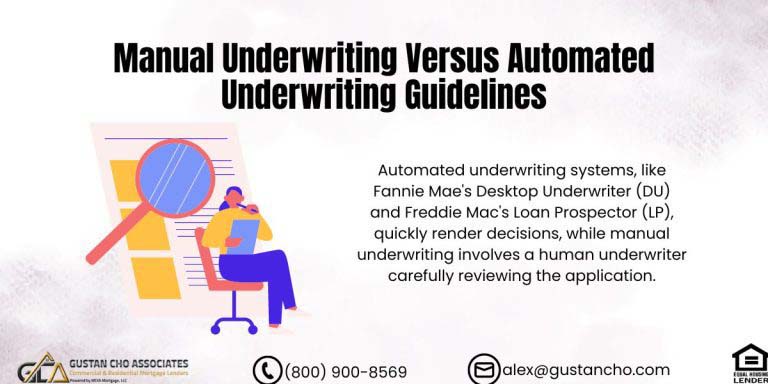HUD Announces Tightening of Credit Requirements on FHA Loans: What It Means for You in 2024
If you’re thinking about buying a home with an FHA loan or refinancing your current mortgage, there’s some important news you need to know. The U.S. Department of Housing and Urban Development (HUD), which oversees FHA loans, has implemented changes that could impact your approval eligibility. These changes mean it may be more challenging to qualify for an FHA loan, especially if your credit score isn’t perfect, your debt is on the higher side, or you’re looking to take cash out when refinancing.
Let’s examine what this means for you as a borrower and how you can still secure the financing you need, even with these new rules in place.
Understanding the HUD Credit Tightening for FHA Loans
In March 2019, HUD reprogrammed the Automated Underwriting System (AUS) criteria to evaluate FHA loans. The goal? To lower the chances of providing loans to individuals with potentially lower credit scores, higher debt-to-income (DTI) ratios, or other factors that could increase the risk of the loan.
Fast-forward to 2024, and these changes are still in place, with even more emphasis on manual underwriting for certain borrowers.
This tightening of credit requirements means that some borrowers who might have easily received an “approve/eligible” status from the AUS in the past may now get a “refer/eligible” status. But don’t worry—this doesn’t mean you’re out of the game. It just means your loan might need to be manually underwritten, where a real person (an underwriter) reviews your application instead of relying solely on automated systems.
Want to Buy a Home with an FHA Loan? Let’s Review Your Credit Requirements!
Reach out now to find out how we can help you qualify for an FHA loan based on your credit.
Why Did HUD Tighten Credit Requirements?
HUD’s primary focus is to minimize risk, ensuring that loans are given to borrowers who are most likely to repay them. In recent years, there have been concerns about the growing number of borrowers with layered risks—things like lower credit scores, higher DTIs, or those seeking cash-out refinances. By tightening the credit requirements, HUD aims to ensure that the FHA program remains sustainable and continues to help people buy homes while managing risk effectively.
What Is Manual Underwriting, and How Does It Work?
When the AUS flags your loan as “refer/eligible,” it means manual underwriting is required. This process involves a human underwriter taking a closer look at your financial situation. They’ll review your credit history, income, employment, assets, and other factors to decide whether you can afford the loan. Manual underwriting can be more detailed and time-consuming, but it also allows for a more personalized review of your circumstances.
Here’s what the manual underwriting process typically involves:
- Review of Your Credit Report: The underwriter will carefully examine your credit history. If you have any late payments, collections, or other negative marks, be prepared to explain them.
- Income Verification: You must show evidence of your earnings, like pay slips, tax filings, or bank statements. The underwriter will need to confirm that your income is steady and enough to handle your mortgage payments.
- Debt-to-Income Ratio (DTI): Your DTI ratio, an important factor in manual underwriting, compares your monthly debt payments to your gross monthly income. A lower DTI ratio increases the likelihood of approval.
- Compensating Factors: These positive factors can offset risks in your loan application. Examples include having a large amount of savings, a history of making rent payments on time, or a job with a stable income. The more compensating factors you have, the more likely you are to get approved, even with the tighter credit requirements.
HUD’s 2024 Updates: What’s New?
In 2024, HUD has continued to enforce these stricter credit requirements. However, they’ve also introduced some updates to make the process clearer and more borrower-friendly. Here’s what’s new:
- Enhanced Credit Score Requirements: While FHA loans are still available to borrowers with credit scores as low as 500, those below 620 may face more scrutiny during the underwriting process. Borrowers with scores above 640 are more likely to breeze through the AUS.
- Stricter Cash-Out Refinance Rules: Be mindful that HUD has implemented stricter requirements for taking cash out when refinancing. You’ll need a higher credit score or a lower DTI to meet the qualifications, and there may be limitations on the amount of cash you can take out.
- Increased Emphasis on Reserves: Having cash reserves—money set aside after your down payment and closing costs—has become more important. In 2024, borrowers with lower credit scores may need to show enough reserves to cover a few months of mortgage payments.
- Focus on Residual Income: HUD emphasizes residual income, which is the amount of money you have left over each month after paying all your bills, including your mortgage. This is a strong indicator of your ability to manage your mortgage payments, and having a healthy residual income can be a big plus in the underwriting process.
How to Improve Your Chances of Getting Approved in 2024
Despite the more stringent credit requirements, there are various actions you can take to increase your likelihood of being approved for an FHA loan.
- Boost Your Credit Score: Consider enhancing your credit score if it falls below 620 before seeking a loan. Settle any outstanding debts, rectify inaccuracies on your credit report, and refrain from acquiring additional debt.
- Lower Your DTI: Remember to focus on increasing your monthly debt payments to reduce your DTI ratio. This may include reducing credit card balances, consolidating debt, or boosting your income.
- Save for Reserves: Build up your savings, so you have enough reserves to cover at least three months of mortgage payments. This shows lenders that you’re financially prepared for homeownership.
- Consider a Larger Down Payment: Consider making a larger down payment if possible. This reduces the amount you need to borrow and can make your loan application more attractive to lenders.
- Document Everything: Be prepared to provide detailed documentation of your income, employment, and assets. The more information you can provide, the easier it will be for the underwriter to assess your application.
- Work with a Knowledgeable Loan Officer: A loan officer who knows much about FHA loans and the current HUD guidelines can be a big help. They can guide you through the process and improve your approval chances.
What to Do If You Get a “Refer/Eligible” Finding
If the AUS returns a “refer/eligible” finding, don’t panic. This means that your loan will need to go through manual underwriting. While this may seem daunting, it’s important to remember that manual underwriting allows for a more personalized review of your financial situation. Here’s what you can do:
- Stay Positive: A “refer/eligible” finding doesn’t mean you’re denied. It means your loan will require a bit more scrutiny.
- Provide Additional Documentation: Be ready to provide extra documentation to help the underwriter understand your financial health. This could include letters of explanation for any past credit issues, additional proof of income, or documentation of your cash reserves.
- Focus on Compensating Factors: Highlight any compensating factors that could work in your favor. For example, if you have a steady job with a reliable income, a strong rental payment history, or significant cash reserves, make sure these are documented.
- Be Patient: Manual underwriting can take longer than the automated process, so be prepared for a slight delay in getting your approval. However, if your loan is approved, you’ll have the same opportunities to buy or refinance a home as someone who received an “approve/eligible” finding.
Ready to Apply for an FHA Loan? Let’s See How You Meet the Credit Requirements!
Reach out now to see how your credit score aligns with FHA guidelines and get started on your home loan.
The Bottom Line: You Can Still Get an FHA Loan in 2024
While HUD’s tightening of credit requirements may make getting an FHA loan a bit more challenging, it’s important to remember that these changes are designed to ensure that borrowers are set up for success. You can increase your chances of getting approved by taking the time to improve your credit score, lower your DTI, save for reserves, and work with a knowledgeable loan officer.
Whether you’re looking to buy your first home or refinance your current mortgage, an FHA loan is still one of the most accessible and affordable options. Don’t let the new rules discourage you—use them as motivation to strengthen your financial profile and achieve your homeownership goals.
If you’re ready to take the next step, contact Gustan Cho Associates today. Our team of experienced loan officers is here to guide you through the process and help you secure the financing you need. We’re available 7 days a week, including evenings and weekends, to answer your questions and get you on the path to homeownership.
Ready to Buy or Refinance? Contact Us Today!
At Gustan Cho Associates, we’re here to help you navigate the complexities of the FHA loan process. Whether buying a home or refinancing, our team is dedicated to helping you secure the best financing options available. Contact us today to learn more and start your journey to homeownership!
Frequently Asked Questions (FAQs): HUD Announces Tightening Of Credit Requirements On FHA Loans
- 1. What credit score do I need to qualify for an FHA loan 2024? A credit score as low as 500 is acceptable to approve an FHA loan, but if it falls below 620, manual underwriting will probably be necessary for your application. To increase your likelihood of approval, strive to elevate your score to 640 or above.
- 2. How does the debt-to-income ratio affect my FHA loan application? Your debt-to-income (DTI) ratio measures your monthly debt payments against your total monthly income. A lower DTI ratio increases your appeal as a borrower. Stricter credit requirements from HUD imply that individuals with higher DTIs may undergo a more thorough evaluation and require additional factors to obtain approval.
- 3. What are compensating factors, and how can they help me get approved? Compensating factors are positive aspects of your financial situation that can offset risks in your loan application. Examples include having significant cash reserves, a history of on-time rent payments, or a large down payment. These factors can make getting approved for a loan easier, even with a lower credit score or higher DTI.
- 4. What should I do if my loan application requires manual underwriting? If your loan is flagged for manual underwriting, a human underwriter will review your application. Be prepared to provide additional documentation and highlight any compensating factors. While the process may take a bit longer, it allows for a more personalized assessment of your financial situation.
- 5. Can I still get a cash-out refinance with an FHA loan in 2024? You can still take cash out through an FHA loan, but the rules are stricter. You might need a higher credit score, lower debt compared to your income, or more cash savings to qualify. The amount you can take out may also be limited.
- 6. How can I improve my chances of getting approved for an FHA loan? Focus on improving credit score, lowering DTI, saving for reserves, providing thorough documentation, and working with a knowledgeable loan officer to increase approval chances.
- 7. How do HUD’s tightened credit requirements impact first-time homebuyers? It can be tougher for first-time homebuyers to qualify for an FHA loan due to stricter credit requirements. Despite this, FHA loans are still a good option for those with lower credit scores. Improving your financial profile and collaborating with an experienced loan officer can help you secure financing.
- 8. Will these tightened credit requirements affect my mortgage interest rate? Remember, your credit score and DTI ratio will affect the interest rate you receive. People with higher credit scores and lower DTIs usually get better rates. Improving these factors can help you get a better rate despite tightened credit requirements.
- 9. How do the new cash reserve requirements impact my loan application? The emphasis on having cash reserves will be stronger in 2024. If your application is flagged for manual underwriting, having cash reserves equivalent to several months of mortgage payments can be a significant advantage. These reserves provide lenders with confidence that you can continue making payments even in the face of unexpected expenses.
- 10. What should I do if denied an FHA loan due to the new credit requirements? If your application is declined, don’t feel discouraged. Before reapplying, work on improving your credit score, reducing your debt-to-income ratio, and increasing your savings. For guidance on qualifying in the future, reach out to a mortgage broker or loan officer who specializes in FHA loans.
If you have any questions about HUD Announces Tightening Of Credit, please contact us at 800-900-8569. Text us for a faster response. Or email us at alex@gustancho.com. The team at Gustan Cho Associates is available 7 days a week, on evenings, weekends, and holidays.
This blog about HUD Announces Tightening Of Credit Requirements On FHA Loans was updated on August 28th, 2024.
Wondering About FHA Loan Credit Requirements? Let’s Help You Get Pre-Approved!
Contact us today to learn more about FHA credit guidelines and get pre-approved for your mortgage.










